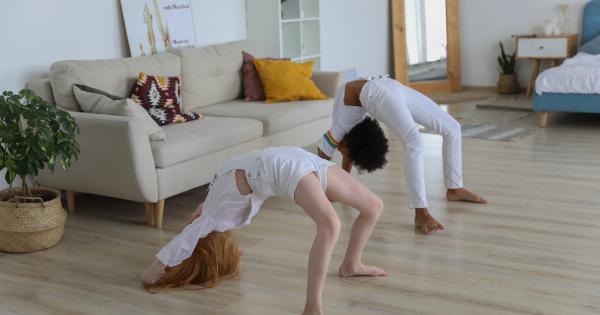Gymnastics is a demanding and physically challenging sport that requires strength, flexibility, and agility.
Whether you are a professional gymnast or just enjoy gymnastics as a hobby, finding the right time of day to train can greatly impact your performance and progress. While there isn’t one universal answer that applies to everyone, there are several factors to consider when determining the ideal time for gymnastics training.
1. Morning
Gymnastics training in the morning has its advantages. Many people find that exercising early in the day helps them start their day on a high note and sets a positive tone for the rest of the day.
Additionally, training in the morning can increase your energy levels throughout the day, allowing you to be more productive in other areas of your life.
One of the physiological benefits of training in the morning is that your body is rested and rejuvenated after a good night’s sleep. This can enhance your performance and reduce the risk of injuries.
Furthermore, morning training can help improve your focus and mental clarity, as your mind is fresh and not yet clouded by the stresses of the day.
2. Afternoon
The afternoon is another popular time slot for gymnastics training. By midday, your body has had time to wake up and warm up, making it more flexible and ready for intense physical activity.
Many athletes find that they have higher energy levels in the afternoon, which can lead to improved performance and better training sessions.
Training in the afternoon also allows you to take advantage of the body’s natural circadian rhythm. Our body temperature tends to be highest in the late afternoon, which can lead to increased muscle flexibility and reduced risk of injuries.
Moreover, the afternoon training session provides an opportunity for mental and physical recovery from the morning activities, allowing you to approach your gymnastics training with a fresh perspective.
3. Evening
For some gymnasts, training in the evening works best for their schedule and body. By the end of the day, your body has been in motion for several hours, and your muscles are warmed up and ready for intense physical activity.
Evening training can be an excellent way to release any accumulated stress or tension from the day’s events.
Additionally, training in the evening can help improve sleep quality.
A study published in the Journal of Strength and Conditioning Research found that individuals who engaged in high-intensity exercise in the evening experienced deeper and more restorative sleep. This can lead to better recovery and overall athletic performance.
4. Factors to Consider
Although there are advantages to training at specific times of day, it is crucial to consider individual preferences, lifestyle, and external factors that may affect your training schedule.
Here are a few factors to consider when determining the ideal time of day for gymnastics training:.
a. Personal Energy Levels
Everyone’s energy levels fluctuate throughout the day. Some people naturally have more energy in the morning, while others feel more energetic in the afternoon or evening.
Pay attention to your body’s natural energy patterns and try to align your training sessions accordingly.
b. Schedule and Commitments
Consider your daily schedule and commitments when planning your gymnastics training. If you have work, school, or other responsibilities, you may need to find a time slot that accommodates your other activities.
Try to choose a time when you can fully dedicate yourself to your training without distractions.
c. Weather and Temperature
The weather and temperature can influence your training experience. Extreme heat or cold can affect your performance and increase the likelihood of injuries.
If you live in a region with extreme temperatures, it might be a good idea to train indoors or during cooler parts of the day.
d. Gym Availability
If you train at a gym, the availability of training space can impact your schedule. Some gyms may have peak hours where it can get crowded, leading to a less ideal training environment.
Plan your training sessions during quieter times when you can have ample space and resources to focus on your training.
e. Competition Time
If you are a competitive gymnast, it is essential to consider the competition schedule when planning your training sessions.
Try to align your training time with the competition time to ensure that your body and mind are accustomed to performing at their peak during that specific time of day.
Conclusion
While there is no one-size-fits-all answer to the ideal time of day for gymnastics training, considering factors such as personal energy levels, schedule, weather, and competition time can help you determine the best time for your training sessions.
Ultimately, the ideal time is the one that allows you to train with optimal focus, energy, and performance. Experiment with different training times to find what works best for you and remember to listen to your body’s needs for rest and recovery.






























